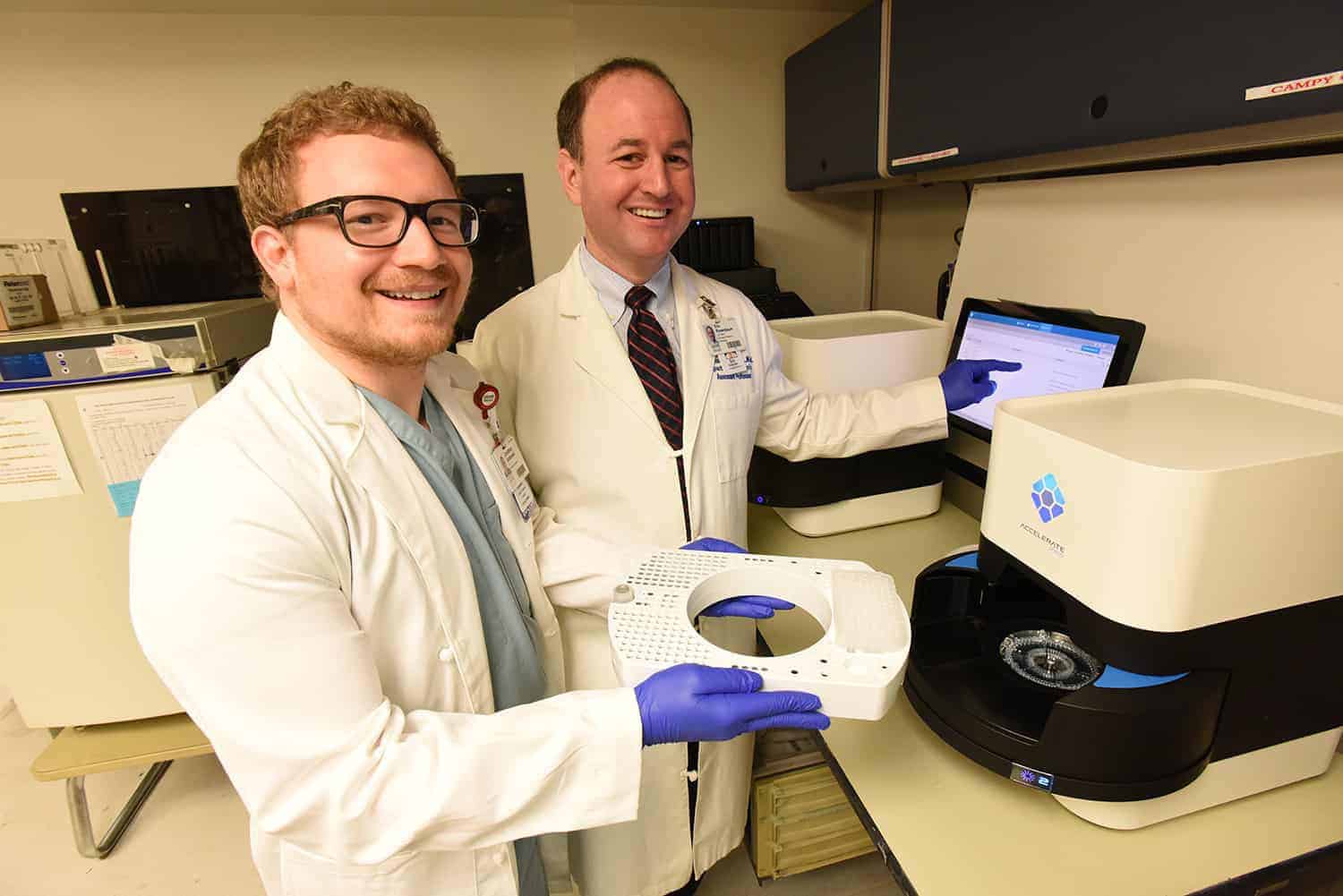Accelerate Pheno at UAMS Significantly Reduces Time for Identification of Pathogens, Treatment
| Feb. 21, 2018 | A new technology at the University of Arkansas for Medical Sciences (UAMS) reduces from days to hours the time it takes to identify pathogens associated with life-threatening blood-borne infections.
The FDA-approved Accelerate Pheno(TM) system also quickly identifies which antibiotic would be most effective on a case-by-case basis. It is the latest addition to the Clinical Microbiology Laboratory’s array of industry-redefining technologies for the identification and treatment of infectious diseases.
“We are one of the first in the world introducing this technology,” said Eric Rosenbaum, M.D., M.P.H., medical director of the Clinical Microbiology Laboratory. “The way it works is nothing short of revolutionary – part of a wider renaissance in clinical microbiology we are experiencing. But more importantly, it provides our clinicians and patients life-saving results at speeds never before possible.”
Conventional methodology takes at least two days to identify a pathogen and about three days for the antibiotic results. The Accelerate Pheno can identify a pathogen in one hour and identify a treatment in a matter of several hours.
“For critically ill patients with blood infections, hours compared to days can save lives – this marks a major change in the way UAMS now approaches these complex illnesses,” Rosenbaum said.
“Our faculty physicians are dedicated to generating and advancing new biomedical knowledge that improves health, since new knowledge drives clinical care,” said Pope L. Moseley, M.D., executive vice chancellor of UAMS and dean of the College of Medicine. “Dr. Rosenbaum’s progressive and innovative approach to clinical pathology will result in additional life-saving care for many Arkansans.”
Most significant is the ability of the Accelerate Pheno to test a pathogen’s susceptibility to various antibiotics and provide a score indicating which antibiotic would be most effective.
“This feature is new and unique,” Rosenbaum said. “It means we are getting patients on the most appropriate antibiotic days faster, off more-expensive and sometimes toxic broad spectrum antibiotics and on the road to recovery.”
The Accelerate Pheno is an example of how innovators and tech-minded individuals are changing the world of medicine.
Previously, the method of testing samples had remained essentially unchanged since its inception decades ago. It involved putting a sample from the patient in a dish, allowing it to grow, and then identifying the pathogen using relatively prolonged biochemical testing.
Instead, the Accelerate Pheno uses a technology called morphokinetic cellular analysis. Video of a pathogen’s growth is recorded and computer algorithms compare it to an archive of growth pattern information – a first-ever application of this technique in clinical microbiology.
The Accelerate Pheno is just one of several technologies at the Clinical Microbiology Laboratory that improve identification of diseases, including tuberculosis, meningitis, drug-resistant infections, influenza and others.
